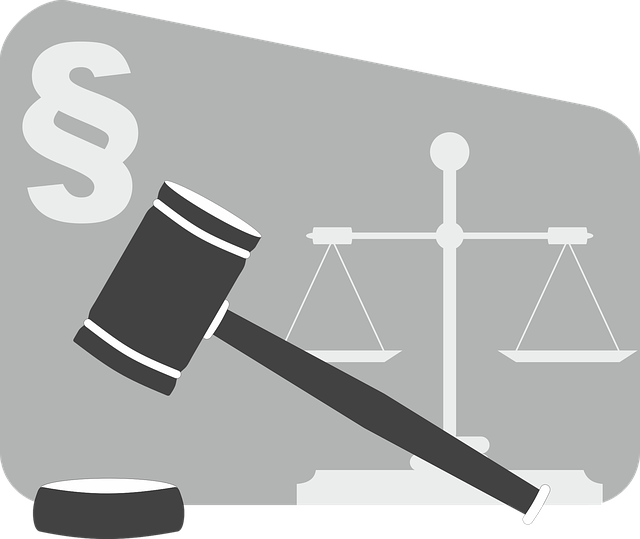Navigating healthcare regulations involves understanding a complex web of federal, state, and local laws, with noncompliance leading to severe penalties. The Understanding Healthcare Regulatory Litigation Process is crucial for mitigating risks, avoiding legal pitfalls, and fostering compliance in a competitive landscape. Litigations related to non-compliance, licensing, and white-collar crimes shape healthcare policies, improve patient outcomes, but demand significant resources away from direct patient care.
In the dynamic landscape of healthcare, understanding healthcare regulatory litigation is crucial for navigating complex legal issues. This article delves into three key aspects: navigating intricate healthcare regulations, exploring common legal disputes in medical practices, and examining the profound impact of regulatory litigation on patient care. By gaining insights into these areas, healthcare providers can better manage risks and ensure compliance, ultimately fostering a more effective and efficient healthcare system. Let’s explore the understanding healthcare regulatory litigation process in depth.
- Navigating Complex Healthcare Regulations: An Overview
- Common Legal Disputes in Medical Practices
- The Impact of Regulatory Litigation on Patient Care
Navigating Complex Healthcare Regulations: An Overview

Navigating Complex Healthcare Regulations involves understanding a labyrinthine web of laws and guidelines designed to ensure patient safety and ethical practices. This intricate landscape includes federal, state, and local regulations covering everything from patient consent and record-keeping to billing and clinical trials. Noncompliance can lead to severe consequences, including substantial fines, license revocation, and even criminal charges for healthcare professionals and institutions.
The healthcare regulatory litigation process is a critical component of ensuring accountability. When violations occur, patients and advocacy groups may file lawsuits against providers or facilities, seeking compensation for harm and justice for perceived wrongs. Understanding this process—from investigation to trial—is crucial for healthcare organizations aiming to avoid legal pitfalls and maintain the highest standards of care across the country. Moreover, successful navigation of these regulations can lead to a complete dismissal of all charges in cases of genuine misunderstandings or technical violations. Even more so, it plays a pivotal role in mitigating the impact of white-collar and economic crimes within the sector.
Common Legal Disputes in Medical Practices

Medical practices often face a myriad of legal disputes that can arise from various sources, including patient care issues, billing practices, and regulatory non-compliance. Understanding healthcare regulatory litigation is crucial for medical professionals to mitigate risks and navigate potential challenges. Common legal disputes involve allegations of medical malpractice, where patients claim harm due to negligent treatment, and contractual disagreements related to insurance claims or patient agreements.
White collar and economic crimes are also prevalent in the healthcare sector, with instances of fraud, embezzlement, and false billing leading to costly legal battles across the country. Medical practices must be aware of their obligations under healthcare regulations and comply with them strictly to avoid these disputes. A robust internal control system and regular audits can serve as powerful deterrents, while a proactive approach towards understanding the complex healthcare regulatory landscape is key to fostering a culture of compliance, ensuring the sustainability and integrity of medical practices in today’s competitive environment.
The Impact of Regulatory Litigation on Patient Care

Regulatory litigation significantly influences patient care, often shaping the healthcare industry’s landscape. When health institutions face legal challenges related to compliance issues, licensing disputes, or regulatory non-adherence, it can lead to disruptions in their operations. These cases, involving white collar and economic crimes, can attract significant media attention and have far-reaching consequences for both providers and patients. Understanding the healthcare regulatory litigation process is crucial as it directly impacts access to quality care.
Litigation outcomes can drive changes in policy and practice, ensuring institutions uphold stringent standards. This, in turn, contributes to achieving extraordinary results in patient outcomes across the country. However, the legal battles can be lengthy and complex, requiring substantial resources from healthcare organizations that might otherwise be allocated to direct patient care. As these cases navigate through the intricate regulatory environment, they highlight the importance of proactive compliance measures to mitigate risks and maintain the integrity of patient-centric healthcare services.
Understanding healthcare regulatory litigation is paramount for medical professionals to navigate complex legal issues and ensure patient care isn’t hindered. By recognizing common disputes and the impact of regulations, practices can proactively manage risks and maintain compliance. This knowledge empowers them to focus on providing quality care, ultimately fostering trust between patients and providers in today’s scrutinized healthcare landscape.






